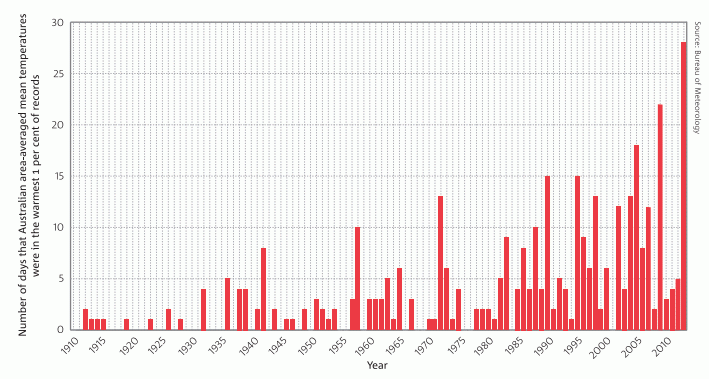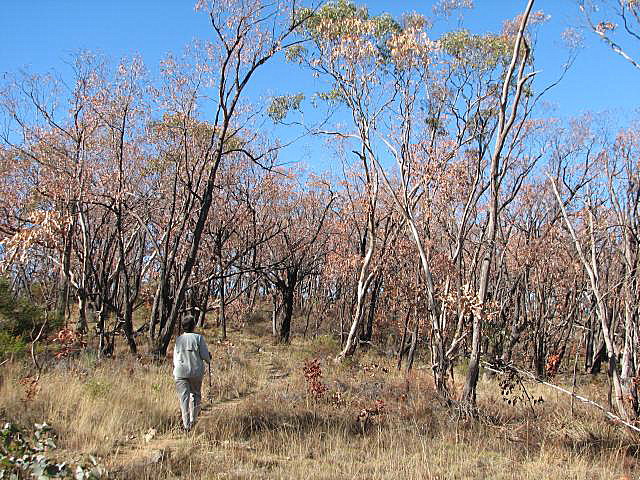|
The back cover tells us that Mr Bennett is Professor of Environmental Management in the Crawford School of Economics and Government at the Australian National University.
Mr Bennett seems to consider his subject from an economic and human-centred, rather than from an environmental, perspective. Early hints of climate science denial become more than that in chapter nine on climate change. Much of Bennett's stance generally seems to be due to an apparently economically based point of view and his denial of the reality and urgency of climate change.
Bennett does not once mention the problem of ocean acidification, perhaps because it had not come to the notice of economists at the time he wrote his book. The increasing acidity of the world's oceans, due directly to increasing levels of dissolved carbon dioxide, is closely connected with climate change yet not a part of climate change. The increasing levels of carbon dioxide in the atmosphere lead to increasing levels of carbonic acid in the oceans. The higher acidity levels are a threat to any marine creature that makes a shell or skeleton out of calcium carbonate (which is soluble in acidic conditions).
The index of Little Green Lies has 35 references under 'price', not a single mention of ocean acidification.
I have written a page on why everyone should accept the reality of anthropogenic climate change
elsewhere on this site.
Just one of those reasons can be seen in the graph below.
|
The number of days on which Australian mean temperatures were in the
hottest 1% since records began up to and including 2013.
|
|---|

|
Professor Bennett's book is aimed at exposing what he calls the 'little green lies' around the questions about the long-term sustainability of the planet. He looks from the point of view of not 'what is best for the long-term preservation of a healthy biosphere?', but rather 'how can the environment be handled so that humanity can get the most out of it?'
The first chapter, on peak oil, was well written and in general quite true, although it down-plays the environmental costs of burning fossil fuels and it should have discussed the declining energy return on investment (EROI) in the petroleum industry.
In the second chapter, on renewable energy, on p35 he gives figures for greenhouse gas emissions for various forms of energy generation. His reference for these figure was an article published by the International Atomic Energy Agency (IAEA), for which he gave a URL. I could not find it on the Net. However, I did find an article on the IAEA's site by Daniel Weisser titled "A guide to life-cycle greenhouse gas emissions from electric supply technologies". I give both Bennett's and Weisser's figures below:
| Greenhouse gas emissions for various electricity generating methods (in grams of carbon equivalent per kWh of generated electricity) | ||
|---|---|---|
| Method | Bennett | Weisser |
| Coal | 357 | 1000 |
| Gas | 188 | 540 |
| Solar PV | 76 | 56 |
| Wind | 13 | 12 |
Other sources give similar greenhouse gas emissions for coal and gas to those given by Weisser; why did Bennett give such low values? Was it to try to make coal and gas look more benign than they really are? I have shown elsewhere on this site that the burning of fossil fuels is very far from benign.
In chapter 4, on population, Bennett (p73) mentions the 'possibility' of providing all the world's power using nuclear energy. He was apparently unaware that there are not enough economic uranium reserves to do this for any significant length of time. He seemed to overlook most of the problems, including economic problems, with nuclear energy.
Perhaps Bennett's worst distortion of the truth (or should I say his greatest lie?) was in chapter 9 on climate change (p167) where he claims there is no scientific consensus that climate change is largely caused by human activities. While the fossil fuel lobby (including the Murdoch media) likes to imply that there is no consensus, Bennett has chosen to ignore the consensus that quite definitely exists among climatologists.
James Powell searched the Web of Science and found that of 13,950 peer-reviewed climate articles published between 1991 and 2012, only 24 rejected global warming. There are at least two similar studies of the peer-reviewed climate change literature giving similar results. And I refer the reader again to my page on why everyone should accept climate science.
Bennett references 'retired' mining geologist and outspoken climate science denialist, Ian Plimer, and seems to believe that Plimer is more reliable as a source of climate science information than the entire body of the world's climatologists. A common error of the non-scientist is to assume that all scientists are somehow equal (for example, that Plimer, a mining geologist, is just as likely to be an expert on climate science as is a climatologist). One would not expect a person in Professor Bennett's position to make this assumption, but he seems to have done so in this case. Peer-reviewed publication in respected journals relevant to the subject of the paper is very important. Ian Plimer's work on climate change is not peer-reviewed and has been heavily criticised by climate scientists.
Bennett also overlooks the fact that air pollution from the burning of fossil fuels kills millions of people world-wide each year. This, like climate change, ocean acidification, ocean warming and sea level rise are environmental problems, so perhaps of little importance to someone who looks at the environment as something that needs to be managed in a way to get as much out of it as possible.
